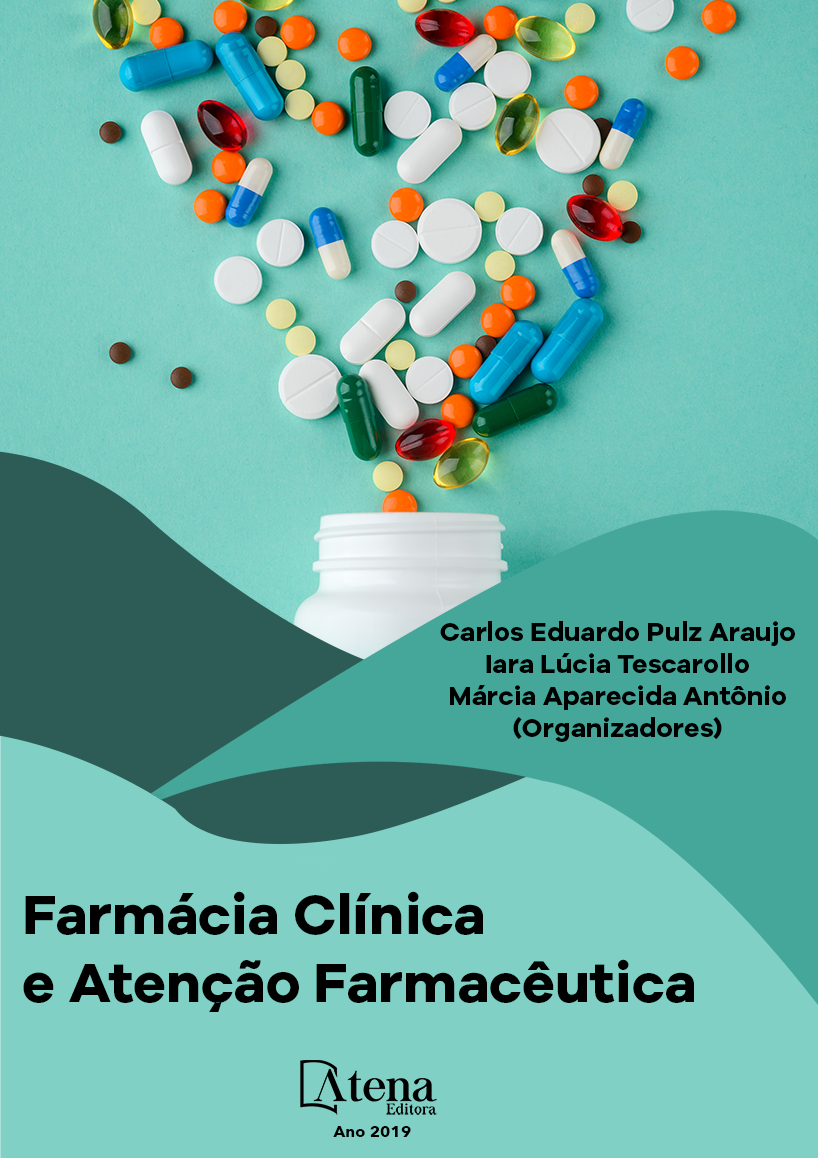
ANÁLISE DO PERFIL DE PRESCRIÇÃO DE ANTIBIÓTICOS EM UMA UNIDADE DE PRONTO ATENDIMENTO DE PERNAMBUCO/PE
Apesar das restrições de compra
delegadas pela Agência Nacional de Vigilância
Sanitária, os antibióticos ainda são prescritos
e consumidos de forma indiscriminada,
contribuindo para resistência bacteriana,
dificultando os tratamentos das infecções. Além
disso, a inexperiência do prescritor, a ausência
de diagnósticos precisos, assim como a baixa
disponibilidade do elenco de antibacterianos
em Unidades de Pronto Atendimento podem
contribuir para resistência bacteriana.
Este estudo tem como objetivo avaliar as
prescrições médicas em relação às hipóteses
diagnósticas encontradas Unidade de Pronto
Atendimento Maria Esther Souto Carvalho. É um estudo retrospectivo, qualitativo e
quantitativo, referente ao período de janeiro a dezembro de 2015. Na coleta de dados,
as informações coletadas foram idade, sexo, hipótese de diagnóstico e antibiótico
prescrito. Em seguida, para cada tipo de antibiótico, foram separadas as amostras e
classificadas de acordo com as infecções acometidas. Ao final do processamento dos
dados, observou-se que 55% dos pacientes eram do sexo masculino e que as infecções
cutâneas foram as que mais acometeram os indivíduos que procuraram atendimento,
bem como, 75,58% das prescrições estavam incorretas. Também foi possível observar
que a faixa etária mais acometida foi entre 42 e 96 anos. A resistência bacteriana está
longe de ser combatida de modo efetivo, pois, além de informar, é fundamental investir
em recursos que auxiliem em diagnósticos precisos e tratamentos eficazes. A atuação
de um profissional farmacêutico colaborando com a equipe multiprofissional pode
mudar todo o quadro de problemas relatados, principalmente o das prescrições de
antibacterianos, resultando assim numa redução nos casos de resistência bacteriana.
ANÁLISE DO PERFIL DE PRESCRIÇÃO DE ANTIBIÓTICOS EM UMA UNIDADE DE PRONTO ATENDIMENTO DE PERNAMBUCO/PE
-
DOI: 10.22533/at.ed.9181919117
-
Palavras-chave: Antibacterianos; Agentes anti-infecciosos; Agentes antibacterianos; Fármacos anti-infecciosos; Fármacos antibacterianos.
-
Keywords: Antibacterials; Anti-infective agents; Antibacterial agents; Anti-infective drugs; Antibacterial drugs.
-
Abstract:
Despite the purchase restrictions delegated by The Brazilian Health
Regulatory Agency, antibiotics are still prescribed and consumed indiscriminately,
contributing to bacterial resistance, making it difficult to treat infections. In addition, the
inexperience of the prescriber, as well as the absence of precise diagnoses, as well as
the low availability of the list of antibacterials in Emergency Care Unit can contribute to
this. This study aims to evaluate the medical prescriptions in relation to the diagnostic
hypotheses found in the Emergency Care Unit Maria Esther Souto Carvalho. It is a
retrospective, qualitative and quantitative study, covering the period from January
to December 2015. In the data collection, the information collected was age, sex,
diagnostic hypothesis and prescribed antibiotic. Then, for each type of antibiotic, the
samples were separated and classified according to the infections. At the end of the
data processing, it was observed that 55% of the patients were male and that the
cutaneous infections were the ones that most affected the individuals who sought care,
and 75,58% of the prescriptions were incorrect. It was also possible to observe that the
most affected age group is between 42 and 96 years. Bacterial resistance is far from
being tackled in an effective way, since, besides informing, it is fundamental to invest
in resources that aid in precise diagnoses and effective treatments. The performance
of a professional pharmacist collaborating with all multiprofessional teams can change
the whole range of problems reported, especially the prescriptions of antibacterials,
resulting in a reduction in cases of bacterial resistance.
-
Número de páginas: 15
- Pedro José Rolim Neto
- Silvana Cabral Maggi
- Francisca Sueli Monte Moreira
- Maria do Carmo Alves de Lima
- Talita Atanazio Rosa
- Cindy Siqueira Britto Aguilera
- Emerson de Oliveira Silva
- Aline Silva Ferreira
- Williana Tôrres Vilela
- Januária Rodrigues de Lima
- Stefane Vasconcelos Pereira
- Rosali Maria Ferreira da Silva


